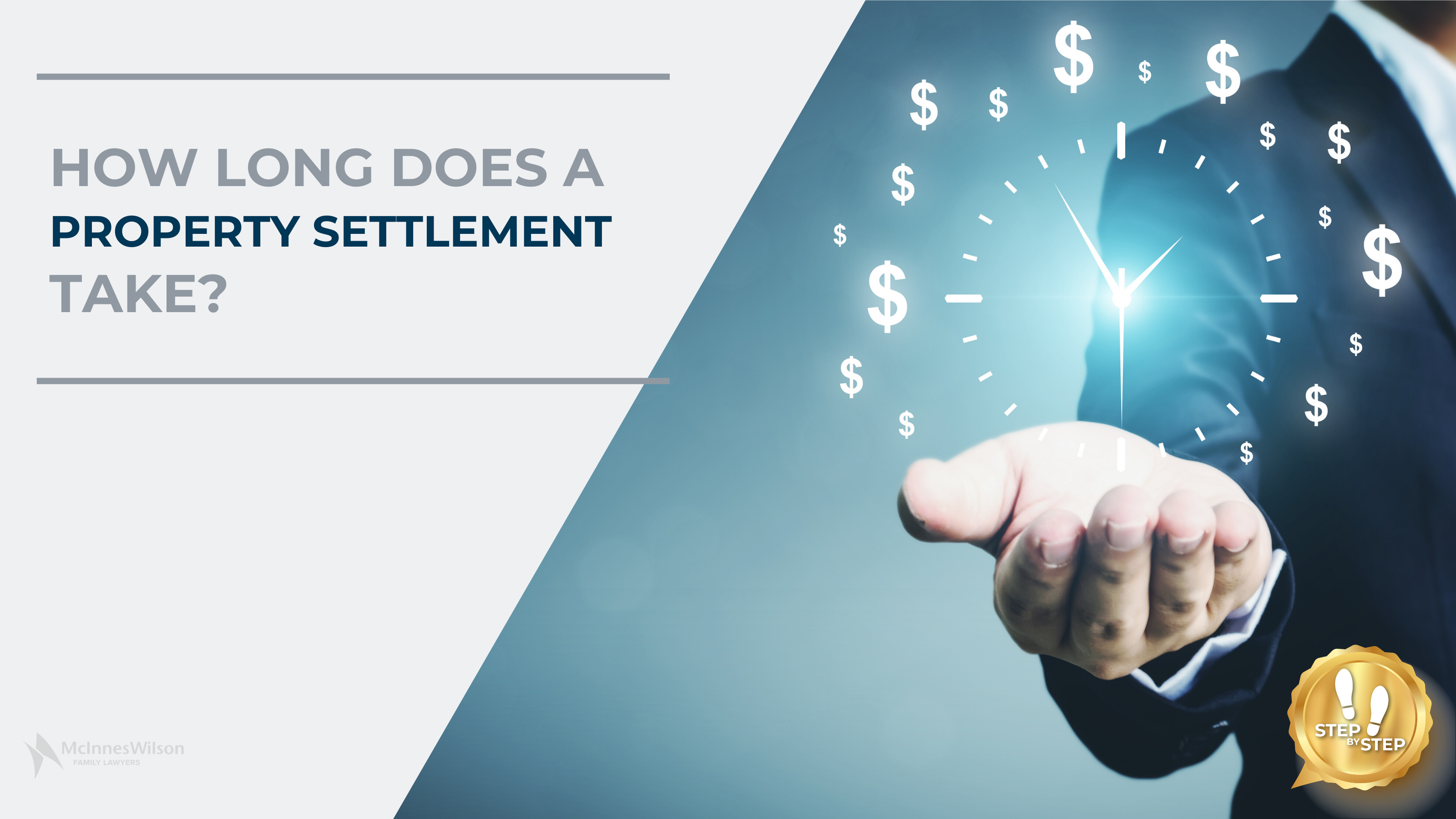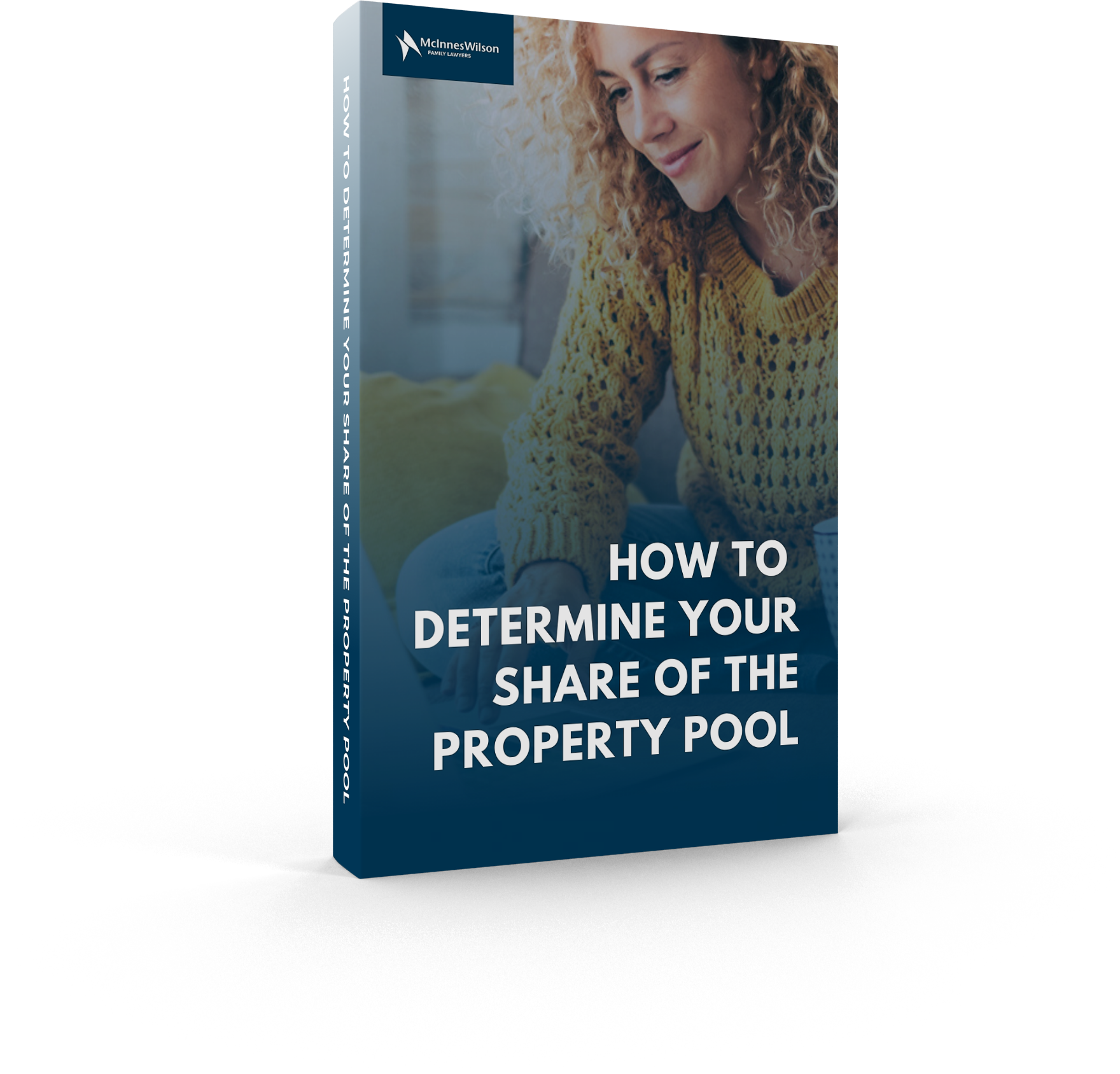
How long does a Property settlement take?
Question:
I've heard a few horror stories about people getting a divorce and the property settlement drag on forever and ever. So I just want to know how long does a property settlement actually take?
Answer:
Normally, when a client asks a lawyer this question they are met with the answer "it depends". We hate this response because it does not give you proper direction.
The truth is, how long a property settlement takes is really up to you and your former partner. A property settlement can be as quick as you want it to be or it can be as drawn out as you want it to be.
If everyone is amicable and the asset split is agreed on, a property settlement can be resolved within a week of two (not including the time it takes for the Court to approve any agreement).
The difficult part in any property settlement is not the actual settlement, but agreeing on the assets available to split. Figuring out what assets and liabilities are included in the 'property pool' (which is basically all of the assets and all of the liabilities) and what each asset is worth is what we see take the most time.
For example, if one party owns a business and you both can't agree on what it's worth, then it has to be independently valued - which can be a lengthy process.
Some assets may also need to be sold first before things can be divided.
Situations like this can drag things out, because once that part of the process is resolved you can negotiate an agreement as quickly as you want.
What if you can't agree on a deal?
If you can't agree on a deal then you will have to go to court.
It's no secret that going to Court can take time. So, once you are in the court system, it's generally not the quickest of processes.
After having your initial court date, you can sometimes wait up to 18 months to two years for a final trial date.
Unfortunately, that time frame is not unusual.
In saying that, despite the delays associated with the Courts, Court is still a very useful tool to resolve matters, even before they get to a final trial.
All the time we see people disagree on what assets are included in the property pool and what each asset is worth. When this process begins to become drawn out that's when court can become useful. The Court will make orders to resolve those disputes at an early stage.
If someone is refusing to value something or is refusing to disclose their assets to you then you can use the court to speed up this process. You can issue subpoenas once you are in the Court system so you can find assets that have not been disclosed. The court can make orders for the valuation of certain assets. So, the court can be a very useful tool, and more often than not, it can speed the process up in situations such as these.

How To Determine Your Share Of The Property Pool.
Free, step-by-step guide to figure out what percentage of the assets you deserve... it's not always 50/50.

How To Determine Your Share Of The Property Pool.
Free, step-by-step guide to figure out what percentage of the assets you deserve... it's not always 50/50.
How can you speed up the property settlement process?
The best way to speed up a property settlement is for both you and your partner to commit to full disclosure. It is in everyone's best interest to get everything on the table as fast as possible. Unfortunately, people don't always see it that way, but if you can disclose and be open and upfront from the get-go, a lot of matters would be resolved a lot quicker.
If you can get the disclosure and the valuation of assets out of the way as quickly as possible things won't drag out.
Unfortunately, when people don't agree, won't agree or just don't treat the process with urgency, they can have to start all over again.
As disclosure is an ongoing process if you allow 12 months to go by with reaching an agreement you may need to do the disclosure and valuation stages all over again. You will likely be in a new financial year so you will have to exchange your bank statements, your tax returns and all of your financials all over again.
Like we said above, Court can be a useful tool, so do not be afraid to use it. If your former partner isn't willing to disclose or work with you to finalise your property settlement in a timely fashion court can speed the process up.
Finally, if your assets are simple and do not require valuations, this can obviously be resolved very quickly if all parties agree. Often people come to us in these situations; they may have already sold the matrimonial home, which was their only real asset. There's money in trust from the sale of the property but there's really nothing else to disclose or value. In these situations we can resolve these matters really quickly, even as quickly as a week or two (excluding the time the Court takes to approve any agreement).
If you have any questions regarding your property settlement feel free to call us on 1300 767 384. Alternatively, book in for a free phone appointment below for a free, step-by-step plan to speeding up your property settlement. It's created by a qualified lawyer and it's fully tailored to your situation.

